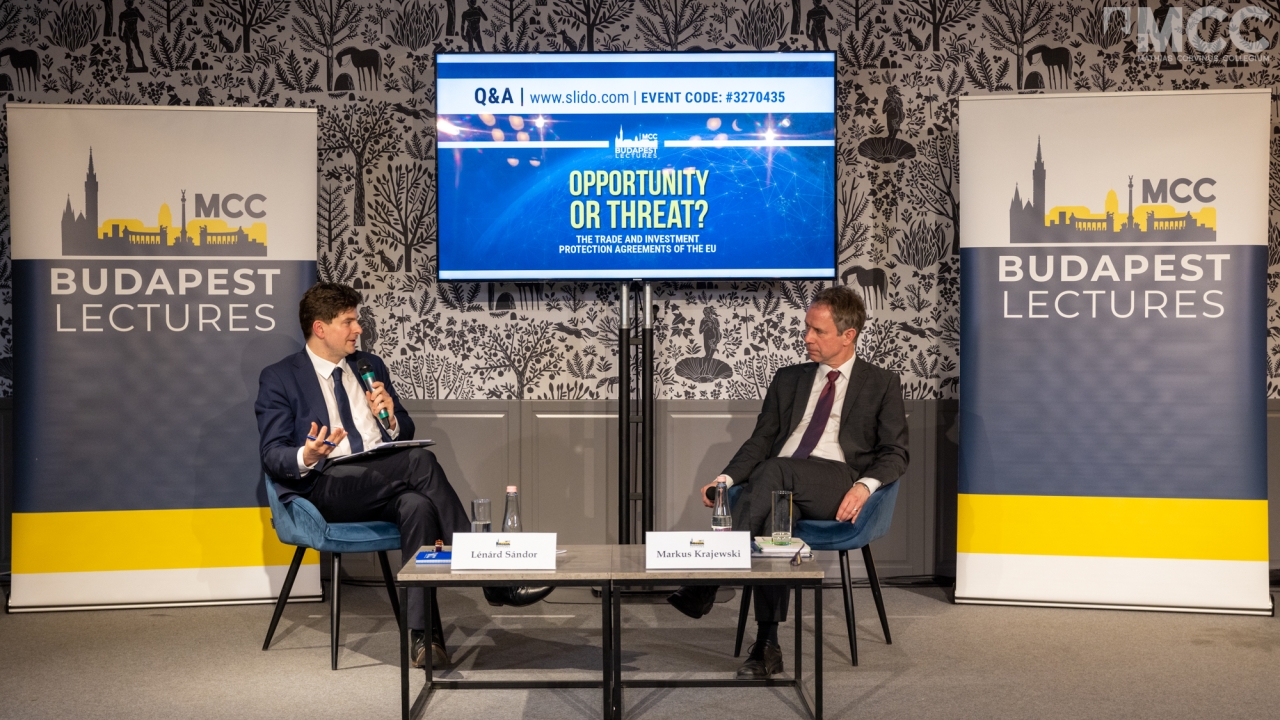Reading time: 2 minutes
We are entering an age of power rivalry, and geopolitical and economic conflicts, and therefore the need for European strategic autonomy is more critical than ever – was pointed out in the MCC Budapest Lectures series. The renowned professor of law at the Friedrich-Alexander University in Nuremberg-Erlangen Markus Krajewski talked about the development of challenges common commercial policy of European integration in a conversation with Lénárd Sándor, head of the Center for International Law.
At the beginning of this Budapest Lectures, which was part of the methodological course on the law of the European Union, Lénárd Sándor outlined the importance of the common commercial policy for the competitiveness of the EU Member States along with shifts of the Lisbon Treaty that included the investment relations under the scope of the common commercial policy. In connection with the development of the common commercial policy, Professor Markus Krajewski pointed out that it is the necessary external dimensions of the internal market but the trade and investment policies are following two different rationalities. While the common trade policy is always a result of complex business and economic negotiations, investment treaties are much more straightforward. Even though the EU has gained competence in investment protection, this is not an exclusive competence and the Member States retained some powers in certain questions. So these new investment treaties that the EU is negotiating will have to be ratified by the Member States too and therefore the EU needs the Member States to join in its efforts. In addition to the allocation of international responsibility, Lénárd Sándor also raised the question of treaty reforms. The European Union has been introducing major adjustments to the substantive provisions of the investment treaties and has also been setting up a new institutional framework for dispute settlements. In regards to the reform process, Professor Krajewski pointed out that “the jury is still out” as—although we know what the new EU approach would look like—we do not really have any real experiences with these treaties. Furthermore, the new impetus considerably slowed down. Nevertheless, European countries are entering together an age of uncertainty that is dominated by power rivalry, and geopolitical and economic conflicts. European strategic autonomy is therefore more important than ever.






